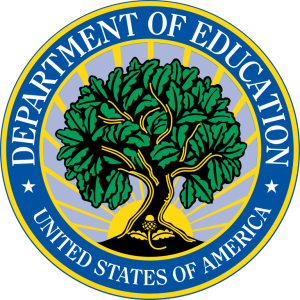My friends know that two of my major personal and professional interests merged this week, as conversations began about the future of education policy in America after the election. Thus, I’ve been asked a lot of questions about the potential impact of a Trump presidency and Trump-led United States Department of Education. So, allow me to shower you with my intellect:
I have no idea what to tell you.
Well, let me rephrase that, we have clues about actions that may or may not occur. However, it’s hard to make predictions when we’re hearing rumors that go so far as to suggest Ben Carson is a top candidate for the role of Secretary. The reality is, we have no firm knowledge of what this will look like in terms of policy and USDOE guidance.
In the first of a two part series to discuss this question, I will share some of the things that I do know, but before I outline them, I implore the three people reading this blog (yes, Mother, you’re included in that count!) not to view this as anything remotely resembling a partisan statement. The point is not to label what policies might be coming as good or bad, just what effect the federal government has, can have, or might have on local schools.
First, here’s a crash course on some key concepts:
- An overwhelming majority of public school funding is provided through state and local sources, not the federal government.
- Any federal money is typically tied to helping schools meet special education and students with disabilities needs, providing additional support for students of poverty, and to support a variety of competitive grants.
- Any leverage the federal government has over schools is related to the threat of losing these pieces of funding. Consider them “incentives.” These incentives are indeed a small piece of the overall funding, but because few states generously allocate money to public schools, they are absolutely vital.
- Schools do have to be responsive to other areas of the federal government tied to laws of the land, and they can be greatly impacted by decisions and recommendations from entities like The Office of Civil Rights. In this instance, for example, federal guidelines associated with the Civil Rights act, trumps state oversight (pun intended!). In other words, you can’t enact a state level practice that is a clear violation of a student’s legal Civil Rights.
I’m dramatically oversimplifying this structure, but at least it gives a little insight for those of you who actually have real lives. Armed with this understanding however, let’s take a look at the potential impact of the Trump administration.
It is important to understand that most presidents, with a recent notable exception of George W. Bush, who came into office with a clear education agenda, have platforms, but either haven’t had the bandwidth or interest to truly invest much personal attention. Further, most administrations seem to use the position as a way to satisfy loyal soldiers for their support, much like an ambassadorship. This is why any kind of education experience rarely appears on the resumes of future Secretaries, and why someone like Ben Carson, a retired neurosurgeon, is reportedly being considered for the role with this administration.
Priorities and actions are still typically somewhat predictable because of President-Elect Trump’s lack of specific or consistent proposals. This, more than any other year, has made for a climate of uncertainty in the education field, and has led to informed speculation, even if the information doing the informing has been difficult to pinpoint.
However, in my next post, we’ll take a look at the possibilities, likelihoods, and impossibilities based on the power of the office, reach of the Department of Education, and who is said to be influencing a platform that – in terms of details – seems to be taking shape almost entirely after the election.










Comments 4
The fear of the unknown is not helping the overwhelming sense of panic throughout our nation. We can only hope someone with educational experience is chosen for the position. Lol. Yes, hope.
I feel like I have just got a crash course in USDOE 101. Thanks for writing this incredibly informative blog. There are so many sources of funding for schools that it is hard to trace the origins sometimes and to keep track of all of the requirement. Can you please write a School Funding for Dummies edition to help explain it to me?
I am so glad this is a 2 parter! I’m already dying to read the next one! I agree with Donnie that this is a great crash course in USDOE. I really appreciate you offering me this Digest version so that I can start to wrap my head around changes as they arise.
FYI: it looks like you had at least 5 readers this time… still waiting on the report from Madagascar.
Six!